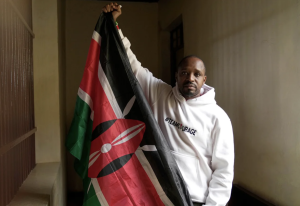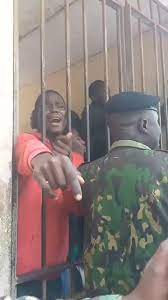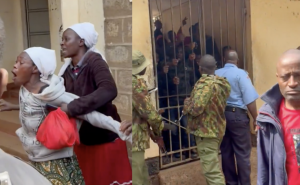Government Use of Terrorism Laws Against Kenyan Youth Protesters 2025
Between 2024 and 2025, Kenya witnessed widespread youth-led protests against government policy, economic hardship, and perceived authoritarian tendencies. During this period, the state responded by arresting hundreds of protesters, many of them under **terrorism-related laws**, sparking national and international outcry.



Background
In June 2024, the Kenyan government proposed new taxation measures through the Finance Bill, triggering countrywide demonstrations largely organized by **Generation Z (Gen Z)** activists via social media platforms. The protests were largely peaceful, though in some cases they escalated into confrontations with police.
Following months of unrest, security agencies began invoking the **Prevention of Terrorism Act (2012)** to arrest and charge protesters. Human rights organizations and constitutional scholars raised concerns that the legislation—intended to combat actual terror threats—was being used to suppress lawful dissent.
Arrests and Charges
Mass Arrests
On **June 30, 2025**, more than **485 individuals** were arrested across the country during anti-government protests. Of these, at least **37 youth** were charged with terrorism-related offenses. Government prosecutors alleged the accused had damaged property and participated in riots that targeted court and police facilities.
Case of Boniface Mwangi
On **July 20, 2025**, prominent activist **Boniface Mwangi** was arrested and charged under the terrorism act. Authorities claimed he possessed riot control weapons (including a tear gas canister and a blank round). Mwangi denied all allegations, and several civil rights groups described the case as politically motivated.
Legal and Constitutional Context
The charges drew criticism from legal observers, who noted that the **Kenyan Constitution (2010)** guarantees the right to protest and due process:
- Article 37: *Every person has the right, peaceably and unarmed, to assemble, to demonstrate, to picket, and to present petitions to public authorities.*
- Article 49(1)(b): *Arrested persons have the right to be informed of the reason for arrest.*
- Article 50(2): *Every accused person has the right to a fair trial and to be presumed innocent.*
- Article 160(1): *The Judiciary shall be subject only to the Constitution and the law—not to any person or authority.*
Public and Institutional Response
National and international rights organizations condemned the state’s use of terror laws:
- Amnesty International Kenya warned against criminalizing peaceful protest and called for the release of all unlawfully detained individuals.
- ICJ-Kenya demanded an immediate judicial review of terrorism cases related to the protests.
- Human Rights Watch stated that the arrests set a dangerous precedent in a democratic society.
The **Kenya National Commission on Human Rights (KNCHR)** also highlighted irregularities in detention conditions and due process violations.
Concerns over Judiciary Independence
The judiciary’s handling of these cases led to increased scrutiny. Protesters and legal professionals questioned whether the courts were operating independently or under pressure from the executive. Reports indicated that some terrorism cases were fast-tracked or delayed arbitrarily, raising fears of executive overreach.
Legacy and Impact
The government's use of anti-terrorism laws during the 2024–2025 protest cycle marked a controversial chapter in Kenya’s democratic evolution. The events prompted calls for legal reform and greater protections for civil liberties, particularly for youth and marginalized voices.
Timeline
| Date | Event |
|---|---|
| June 30, 2025 | Over 485 protesters arrested; 37 charged with terrorism |
| July 11, 2025 | 36 charged for alleged attacks on police and court infrastructure |
| July 20, 2025 | Boniface Mwangi arrested and charged under Prevention of Terrorism Act |
References
- AP News: Boniface Mwangi charged under terror laws
- KBC: 36 charged with terrorism over protests
- Amnesty International Kenya: Protest rights and terror law abuse
- ICJ-Kenya: Statement on judicial overreach
- The East African: Kenya misusing anti-terror laws